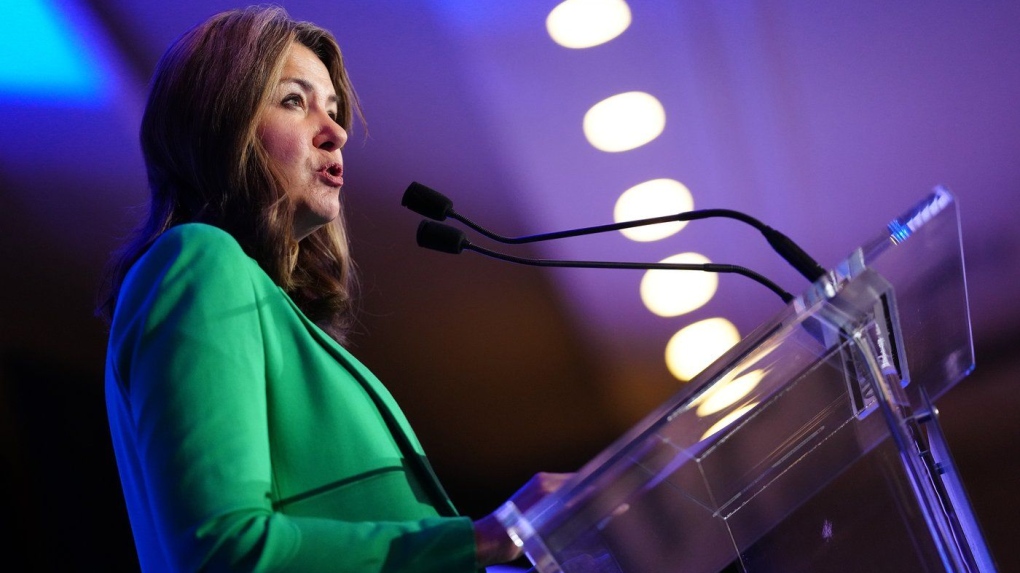Latest News
- Four years after Indigenous woman dies in Niagara Hospital, family still waiting for coroner's investigation
- Lawyer: British Columbia RCMP officer should be fired or resign immediately
- B.C. government looks to offer loan guarantees to property owners in Cowichan Aboriginal title area
- Uber driver's account in Toronto suddenly deactivated; only source of income cut off after 'duplicate account' claim
- TDSB education chief fired by provincial supervisor; sweeping changes at Canada's largest education board
Latest Ads
-
Jasmine Jewel
Call
-
Omidan group
Call
-
Amir Madanpour
Call
-
Dimo studio
Call
-
Yorkacademy
Call
-
Maryambagheri
Call
-
Shishlix Restaurant
Call

Alberta premier hopes for health reform payoff in 2025, regrets deferring tax cut
Alberta Premier Dania Alberta hopes to see the province’s health care reform completed by 2025, but has expressed regret over the delay in tax cuts.
In a recent annual interview, Smith said that the work that began in 2023 to create four new organizations instead of one is almost complete, but there is still work to be done.
“Next year, I think, will be the real time to prove the new model,” he said.
Critics say the overhaul will fragment decision-making, make the system more complicated for patients and staff, add more layers of bureaucracy and have no positive impact on health care worker and hospital bed shortages.
Some of the biggest challenges, Smith said, include ensuring universal access to family doctors and reducing wait times for surgeries to medically recommended timeframes.
For Smith, it has been a process of identifying big problems and starting to solve them. He pointed to introducing a new payment model for nurses, expanding the role of pharmacists and increasing the number of surgeries in private clinics.
His Conservative coalition government is also busy with other initiatives in 2024.
Smith pointed to “significant progress” in re-regulating the electricity market to control volatile prices and lower electricity bills, including the introduction of a new default rate starting in January.
He also said Alberta has been dealing with more than 1,200 fires, including one that devastated the mountain town of Jasper in July.
The Smith government broke ground in the spring on a new provincial police service and has allocated more money to projects led by officers, including strengthening security on Alberta’s southern border with Montana.
The UCP also came up with new regulatory hurdles for renewable energy development from wind and solar.
A provincial law also introduced party flags at the local level. In the upcoming municipal elections in October, municipalities will be required to count votes by hand, another change that would reshape the political landscape.
Smith enjoys the unwavering support of the UCP. He won the party’s founding vote in November with 91.5 per cent of party members, shortly after introducing the “Alberta Bill of Rights,” which promises to protect the right to refuse vaccinations.
He continues to be supported by his legal and symbolic backlash against the federal Liberal government, which has always been unpopular in Alberta and is keen to turn conservative social proposals into state policy.
In line with this, the government has also passed legislation to restrict transgender health care, which is now facing a legal challenge.
The cost of rebuilding Smith’s health system, estimated at $85 million by the government, won’t be the only strain on Alberta’s budget in the new year.
Billions of dollars have been pledged to build new schools over the next three years as classrooms fill up.
About 250,000 public sector workers are still in collective bargaining negotiations with their government employers.
All this comes as Finance Minister Nate Horner has warned that there is a “real risk” of a budget deficit, depending on whether oil prices fall below budget projections.
The government’s projections don’t factor in future policies, such as the 25 per cent tariffs threatened by incoming U.S. President Donald Trump.
As the Alberta government prepares for its 2025 budget, one billion-dollar regret lingers in Smith’s mind.
“We probably should have implemented the tax cuts in our first budget,” he said.
That key campaign promise to save people taxes starting in 2023-24 could be delayed by four years.
“We heard that this disappointed our supporters,” Smith said.
“It might have been better to implement this and then find a way to fund it,” he added.
When he and Horner delayed the decision, the state of oil and gas prices, the Transmaintenance pipeline expansion project and population growth were uncertain.
“We delayed it, but we clearly heard that people needed this tax break,” he said.
As the province’s population has grown, tax revenue has also slowly increased, from $15.1 billion in 2023-24 to a projected $16.5 billion in 2024-25.
Smith said the year-over-year increase surprised him.
He also pointed to Saskatchewan Premier Scott Moe, who delivered on his promise to cut taxes in the recent election and whose Party of Saskatchewan won him a new term.
“Scott Moe learned the lesson I learned, and he campaigned on tax cuts,” Smith said.
When asked at what point his promise would become a broken promise, Smith said he was happy to see long-term revenue increases and that tax cuts are still on his agenda.
“It gives the finance minister some comfort. I’ve asked him to find ways to expedite this, so we’ll see by the end of February whether he’s been able to do that or not.”
Source
Suggested Content
Latest Blog
Login first to rate.
Express your opinion
Login first to submit a comment.
No comments yet.


































